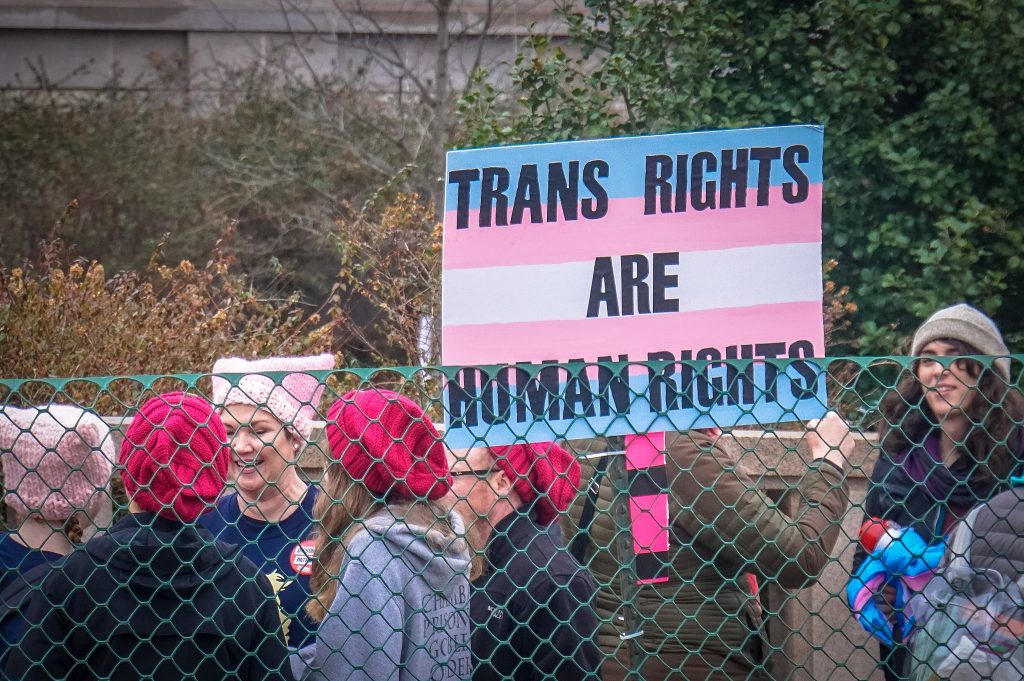A legal case against NHS England over transgender people’s right to access fertility services has been dropped by Britain’s equality watchdog, with both sides claiming a positive outcome.
The Equality and Human Rights Commission (EHRC) had threatened NHS England with a judicial review, saying it should take steps to ensure transgender patients were routinely offered fertility preservation.
Following discussions with NHS England, the legal action has been stopped, with guidance due to be issued to all of the country’s clinical commissioning groups (CCGs) – the NHS bodies that plan and commission services.
Undergoing gender affirmation treatment usually makes trans patients infertile, but many of them are not offered a chance to have eggs or sperm stored.
The watchdog had argued that those seeking treatment for gender dysphoria should be treated in the same way as those with other conditions – such as cancer – which threaten fertility.
Access To Healthcare Needs To Be ‘Free Of Discrimination’
 Image Credit: Ted Eytan/Wikimedia
Image Credit: Ted Eytan/Wikimedia
The agreement is the culmination of a case that began last August when the EHRC sent a pre-action letter to NHS England.
The commission had called for gamete storage for transgender people to be made available across the NHS as a blanket policy, rather than leaving CCGs to decide, as they do now for any patient seeking fertility services.
NHS England rejected the EHRC’s demand and the watchdog launched a judicial review.
At the time, Rebecca Hilsenrath, the watchdog’s chief executive, said: “Our laws and our values protect those who seek treatment for gender dysphoria.
“This means that where appropriate, treatment should be made available in order to ensure that access to health services is free of discrimination.
“A choice between treatment for gender dysphoria and the chance to start a family is not a real choice.”
Under the Equality Act, it is illegal to discriminate against a transgender person in employment, education, the sale of goods and supply of services, public functions and housing.
This includes direct discrimination, harassment and victimisation, as well as indirect discrimination, where policy or standard practice puts a particular person or group of people at a disadvantage.
Schools, police departments and health centres are, therefore, legally required to respect the rights of trans people.
Revised Guidance & A Claim ‘Without Merit’
![]()
The EHRC now say the case has been dropped following discussions with NHS England, who will reissue guidance to CCGs, reminding them that they have responsibilities to commission fertility services like IVF and storage of eggs and sperm.
It’s is also expected to state that a refusal to offer fertility services to people who are transitioning will need a strong justification, and a failure to provide this could be challenged in court.
The watchdog is understood to have welcomed NHS England’s decision to issue the guidance, and sources close to the EHRC are reported to have described it as a considerable improvement that would help combat discrimination against transgender people.
NHS England has also welcomed the commission’s decision to drop the case, with health officials now seeking to recoup significant legal fees.
It is understood that both sides will announce that they have reached an agreement shortly.
An NHS England spokesperson said: “We are pleased to see that the Equality and Human Rights Commission has abandoned its claim against the NHS, which was without merit.”
But Dr Jane Hamlin, president of trans support group The Beaumont Society, said it was ‘very disappointing’ that the EHRC’s case was being dropped.
“Trans people do not ask for special treatment – merely to enjoy the same rights as everyone else,” Dr Hamlin said.
“Sadly, we have become accustomed to being treated as second-class citizens when we just want to experience family life like our friends and relatives.”







